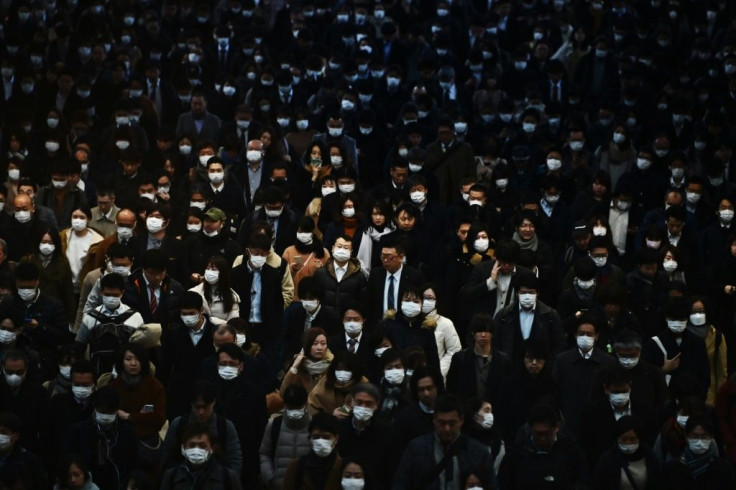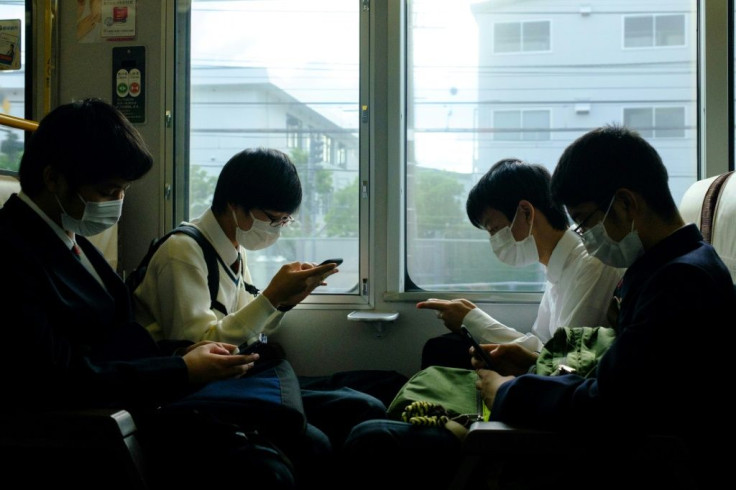Japan Pandemic Jobless Data Mask Woe For Millions: Experts

Unlike most major global powers, Japan has been spared an explosion in unemployment during the coronavirus pandemic, despite the world's third-biggest economy suffering its first recession in more than five years.
However, economists say the situation is not as rosy as the low headline figure may suggest, with millions struggling to make ends meet on precarious temporary contracts.
The latest figures published Tuesday showed Japan's unemployment rate climbed to 2.9 percent in May, up 0.3 percentage points from April and the third consecutive increase.
There were 120 jobs available for every 100 jobseekers, compared with 132 in April. This was the steepest fall in this closely watched indicator since the 1974 oil crisis.
Economists forecast the unemployment rate in Japan will hit four percent by the end of the year, as the tourism and hospitality sectors suffer from border closures and people staying at home because of the virus.
Many countries would welcome an unemployment rate of "only" four percent, with the luxury of having more jobs than jobseekers.
The US unemployment rate hit 13.3 percent in May, with more than 47 million people laid off since coronavirus lockdowns began.
So why has Japan's rate stayed so low? One major explanation lies in the country's dearth of workers owing to an ageing population.

Japan has the world's only "super-aged" society where more than 28 percent of people are 65 and over.
This means firms are reluctant to lay people off even during a recession, as they fear they will have few options to recruit when the crisis passes.
Japanese law also makes it difficult for companies to hire and fire flexibly during a downturn, notes Munehisa Tamura from the Daiwa Institute of Research.
"Therefore, even if an economic shock happens, generally speaking, it does not directly lead to an immediate and sharp spike in unemployment," he told AFP.
Even then, analysts point out the low rate does not account for millions -- especially women -- who gave up their job during the pandemic to care for family and are not counted as jobseekers.
And some critics say the apparently healthy unemployment data belies the daily reality for millions -- especially the 40 percent of the workforce on temporary or part-time contracts.

The government launched a massive economic package that includes funds to help businesses keep employees on -- 4.2 million are on this furlough system, according to government data, some six percent of the workforce.
These staff are still technically on the payroll of their firms and so not included in the official unemployment data but many temporary workers complain they are getting paid very little or nothing at all.
"I was told to stay home, using my paid holidays," said one restaurant employee, who spoke to AFP on condition of anonymity.
But his handful of paid holidays were quickly used up.
"For all of April, May and until now, I have been paid no salary. Absolutely zero."
He said seven other shift workers were in a similar position, while four full-time regular employees were continuing to work and be paid.
His employer, contacted by AFP, declined to comment. But the case is far from unique, experts say.
Union official Tetsuya Obayashi told AFP it was "easier for companies to leave shift workers in limbo".
"When the economy comes back, they can use them again. Shift-workers are nothing but a convenient buffer."
According to Ippei Torii, head of an NGO supporting overseas workers, the worst affected are foreign staff, who made up just 2.7 percent of the workforce in 2019 but frequently occupy temporary and precarious jobs.
"They will be the last to go back to work," he told AFP.
Geraldine, a hotel cleaner in Tokyo from the Philippines, told AFP she is now working just 10 days a month, three hours a shift.
"I earn less than 10 percent of my salary," she said.
"Right now I'm living on my savings. But they are almost completely gone."
© Copyright AFP {{Year}}. All rights reserved.




















